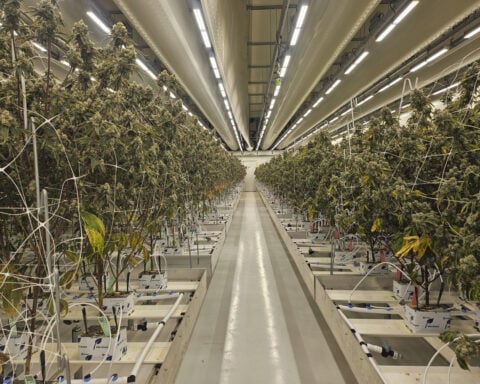Los Angeles, renowned for its health-conscious culture and progressive lifestyle choices, has witnessed a significant surge in the consumption of plant-based products. This trend aligns with the city's embrace of veganism and sustainable living, leading to a noticeable increase in the availability and consumption of plant-based milks and meat alternatives.
The growing demand for plant-based alternatives in L.A. mirrors national trends. Retail sales of plant-based creamers have grown by 62% in the past year, while plant-based cheese and yogurt have seen increases of 41% and 31%, respectively. This shift is driven by factors such as health considerations, environmental concerns, and ethical choices.
When evaluating the health implications of plant-based products compared to traditional dairy and meat, several factors come into play. Plant-based milks often have lower protein content than cow's milk. For instance, almond milk typically contains about one gram of protein per serving, compared to eight grams in cow's milk. However, many plant-based milks are fortified with essential nutrients like calcium and vitamin D to bridge this gap.
Additionally, plant-based alternatives generally contain less saturated fat and no cholesterol, which can be beneficial for heart health. In contrast, certain animal products are higher in saturated fats, potentially increasing the risk of heart disease. Unlike animal-based products, many plant-based alternatives provide dietary fiber, contributing to improved digestion and satiety.
Some plant-based products are highly processed and may contain additives, preservatives, or high levels of sodium to enhance flavor and texture. Consumers should be mindful of ingredient lists and opt for products with minimal processing when possible.
Beyond health, environmental sustainability is a significant driver for the shift toward plant-based products. Producing plant-based milks requires substantially less land and water compared to dairy milk. For example, producing a gallon of plant-based milk requires only 10% of the land needed for the same amount of cow's milk. This reduction in resource usage contributes to a lower environmental footprint, appealing to eco-conscious consumers in L.A.
The increasing consumption of plant-based products in L.A. reflects a broader shift toward health-conscious and environmentally sustainable dietary choices. While plant-based alternatives offer certain health benefits, such as lower saturated fat and cholesterol levels, consumers should remain attentive to nutritional content and processing levels.

 Trump has begun another trade war. Here's a timeline of how we got here
Trump has begun another trade war. Here's a timeline of how we got here
 Canada's leader laments lost friendship with US in town that sheltered stranded Americans after 9/11
Canada's leader laments lost friendship with US in town that sheltered stranded Americans after 9/11
 Chinese EV giant BYD's fourth-quarter profit leaps 73%
Chinese EV giant BYD's fourth-quarter profit leaps 73%
 You're an American in another land? Prepare to talk about the why and how of Trump 2.0
You're an American in another land? Prepare to talk about the why and how of Trump 2.0
 Chalk talk: Star power, top teams and No. 5 seeds headline the women's March Madness Sweet 16
Chalk talk: Star power, top teams and No. 5 seeds headline the women's March Madness Sweet 16
 Purdue returns to Sweet 16 with 76-62 win over McNeese in March Madness
Purdue returns to Sweet 16 with 76-62 win over McNeese in March Madness








